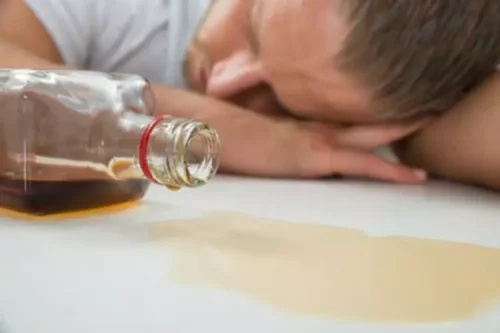Physical Alcohol Dependence: Risks And Warning Signs

For example, clinical studies have indicated that a history of multiple detoxifications increases a person’s susceptibility to more severe and medically complicated withdrawals in the future (e.g., Booth and Blow 1993). The stages of alcohol dependence include a gradual progression from occasional drinking to physical and psychological dependence. As individuals move through these stages, they experience changes in drinking patterns, health, and behavior.

How can I tell if I’m dependent on alcohol?
The contemporary definition of alcohol dependence is still based upon early research. Alcohol dependence is a previous (DSM-IV and ICD-10) psychiatric diagnosis in which an individual is physically or psychologically dependent upon alcohol (also chemically known as ethanol). If you choose to drink, the UK Chief Medical Officers’ (CMOs’) low risk drinking guidelines advise that to keep health risks from alcohol low, it is safest to drink no more than 14 units a week, spread over three or more days with several drink-free days, and no bingeing. Justin was born and raised in Fort Collins, Colorado, where he began his clinical education at Colorado State University. He received his bachelor’s in health and exercise science with a concentration in sports medicine and eventually earned a master’s of psychology in addiction counseling.
Recovery is possible! Take the first step towards a new life today.
- People who have a physical dependence on a substance, such as drugs or alcohol, will experience withdrawal symptoms when they stop using the substance or reduce the amount of substance used.
- It can be extremely dangerous to quit alcohol “cold turkey” in an effort to treat your physical dependence.
- Alcohol tolerance, on the other hand, is the diminished effect of alcohol after repeated consumption.
- In just 2 minutes, you can speak with an admissions specialist, verify your insurance, and explore treatment options that work for you.
- If you or someone you know identifies with the symptoms of physical and psychological dependence, you might need addiction treatment.
- Consequently, people suffering from psychological dependence will spend excess time obtaining drugs, using the drugs, and recovering from the side effects of the drugs.
- Due to increased tolerance, when not drinking, you may experience mild withdrawal symptoms common to physical alcohol dependence, including anxiety, shakiness, headache, insomnia, heart palpitations, and stomach problems such as nausea or vomiting.
When someone struggles with the psychological ramifications of addiction, they feel a compulsion or overwhelming need to use. While psychological dependence and addiction are often experienced together, they often overlap. Many individuals do not have an addiction but are psychologically dependent on their drug of choice. If you or someone you know struggles with any of these, seeking professional help is crucial.
How Can I Tell If I’m Dependent On Alcohol?
If you drink heavily over a period of time, the brain’s chemistry adjusts to the effects of alcohol. Some estimates suggest approximately 90 percent of people recovering from opioid addiction and 75 percent of people recovering from alcohol addiction or other substance addictions will have symptoms of PAWS. Post-acute withdrawal syndrome (PAWS) is another example of psychological withdrawal. It’s a condition that sometimes pops up after the symptoms of physical withdrawal have subsided. If you have depression and anxiety and want to drink alcohol, there are some considerations. Generally, you should limit your intake to 14 units of alcohol in a week — this is equal to six standard glasses of wine or six pints of lager.

What causes alcohol dependence?

The process involves a combination of interviews, self-reported questionnaires, and physical examinations. People who suffer from addiction will typically experience both physical psychological dependence on alcohol and psychological dependence. However, it is possible to become physically dependent on a substance without becoming psychologically addicted. Since addiction is such a complex disease, many people get confused about the difference between physical and psychological dependence. If you are physically dependent on alcohol, you may feel like you are unable to function without it and experience obsessive thoughts about drinking.
Alcohol Dependence and Depression
End-Stage – This final stage, known as the late stage or end-stage alcoholism, is described as total alcohol dependence, where you may experience uncontrollable alcohol consumption. Health conditions, like cardiovascular and liver diseases, may be caused or exasperated by your alcohol use, and death from alcohol poisoning or long-term effects of alcohol use is imminent if treatment is not sought. Aside from intense cravings and consuming thoughts of alcohol, when not drinking, you may experience severe withdrawal symptoms, including visual or hearing disturbances or hallucinations, delirium, and possibly seizures. The withdrawal symptoms of alcohol dependence include a range of physical and psychological effects that occur when an individual who is physically dependent on alcohol suddenly reduces or stops drinking. Withdrawal symptoms vary in severity depending on the level of dependence, and they begin within hours of the last drink.
- Therefore, it’s advisable to explore inpatient and residential treatment facilities that can provide support and tools to help maintain your sobriety.
- Whether you struggle with physical or psychological addiction or both, we help you learn the tools you need to overcome at Gateway.
- Helping them access resources, such as counseling, support groups, or treatment programs, is an important step toward recovery.
- The risk of developing a range of health problems increases the more you drink on a regular basis.
- Moreover, after receiving some of these medications, animals exhibited lower relapse vulnerability and/or a reduced amount consumed once drinking was (re)-initiated (Ciccocioppo et al. 2003; Finn et al. 2007; Funk et al. 2007; Walker and Koob 2008).
- The details are kept up to date to help people with addiction treatment needs get the most full and precise facts about the rehabilitation facility.
Open communication is key—listen without criticism and encourage honest conversations about their struggles. Helping them access resources, such as counseling, support groups, or treatment programs, is an important step toward recovery. At the same time, it’s important to set boundaries to protect your own well-being and ensure self-care, as supporting someone with alcohol dependence is emotionally taxing. Variations in genes responsible for alcohol metabolism, such as those affecting liver enzymes, are also significant. Psychological dependence, on the other hand, is treated using behavioral therapies, holistic therapies, and support groups. The goal of these treatments marijuana addiction is to help patients identify harmful thoughts or behaviors and replace them with healthier coping mechanisms.
- The difference between alcohol dependence and binge drinking is that alcohol dependence is a chronic condition characterized by a physical and psychological need for alcohol, with withdrawal symptoms when not drinking.
- You’re probably dealing with both a physical and psychological dependence in this case.
- Dependence occurs as the body adapts to the regular presence of alcohol and requires it to function normally.
- Darcie believes in collaborating with her clients, tailoring interventions to suit their individual needs.
She specializes in mood and personality disorders as they relate to addiction and is passionate about healing trauma by way of brainspotting and other trauma therapy methods. If she won the lottery tomorrow, Chanel said she start a bookstore with a bakery inside for guests to enjoy their favorite books with an excellent coffee and dessert. Psychological addiction to alcohol can have far-reaching consequences, affecting every aspect of an individual’s life. If you or a loved one is experiencing these symptoms, it’s essential to seek professional support. Psychological addiction is not a sign of weakness; it’s a medical condition that requires treatment. This rewiring of the brain makes it incredibly difficult to break free from psychological addiction without professional help.
Psychological addiction to alcohol can feel overwhelming, but recovery is possible with the right support. At AspenRidge Recovery in Denver, Colorado, we’re here to help you break free from the cycle of addiction and reclaim your life. Psychological addiction can persist even after the physical dependence on alcohol has been addressed, making it a critical focus of treatment. Psychological dependence is a term that describes the emotional or mental components of substance use disorder, such as strong cravings for the substance or behavior and difficulty thinking about anything else.

Family owned and operated since 2014, Infinite Recovery was founded by Michael & Ylianna Dadashi to give those struggling with addiction a second chance and help to rebuild their lives. Clean and sober since 2009, Michael is passionate about helping others discover their authentic self and live a life of true freedom and purpose. Infinite Recovery has strict sourcing guidelines and relies on peer-reviewed studies, academic research institutions, and medical associations for our references. You can learn more about how we source our https://ecosoberhouse.com/ references by reading our editorial guidelines and medical review policy. Psychological dependencies can be extremely hard to overcome, especially if your use hasn’t negatively impacted your life yet, such as costing you money, affecting your job, or having any bearing on your relationships.
